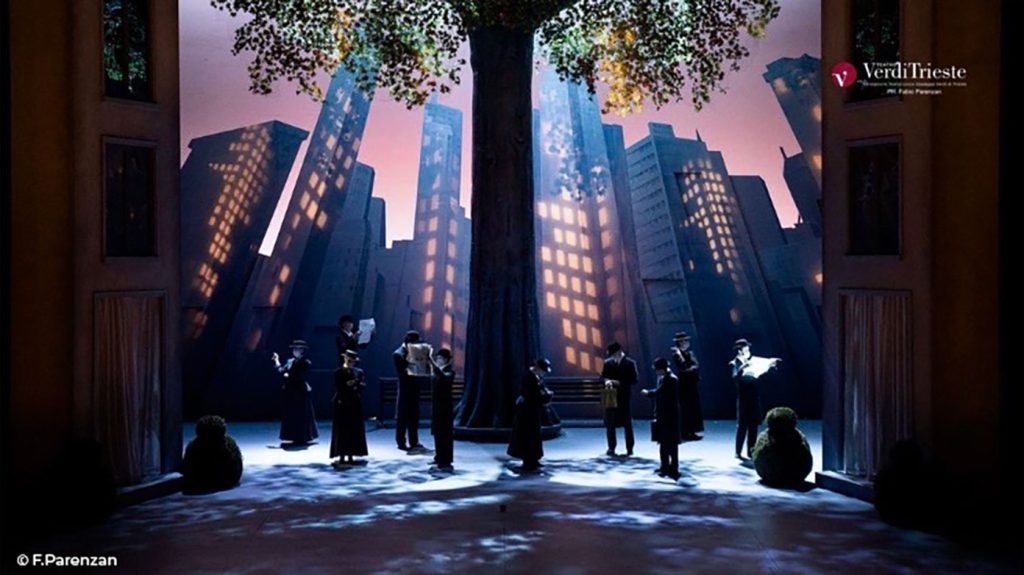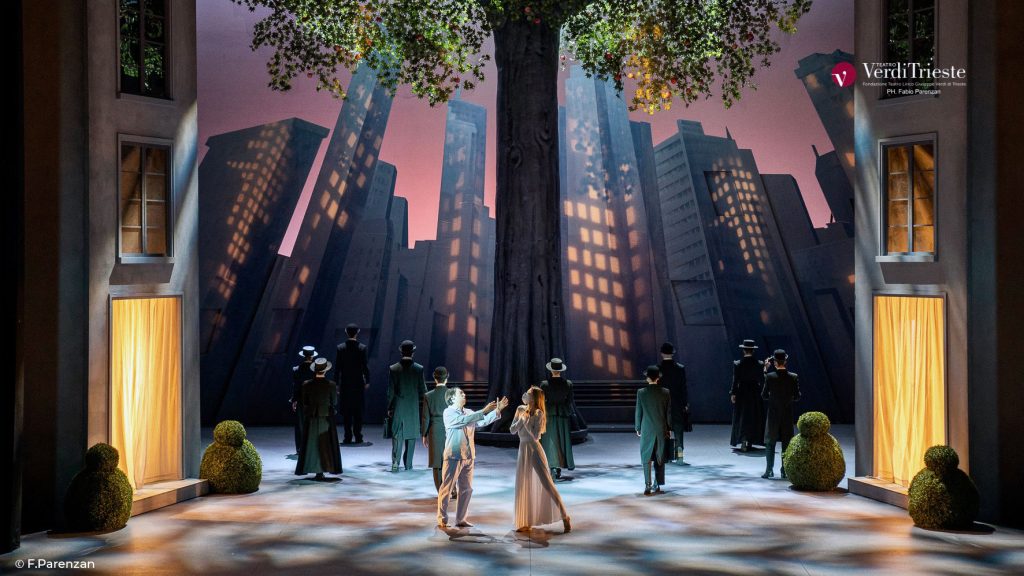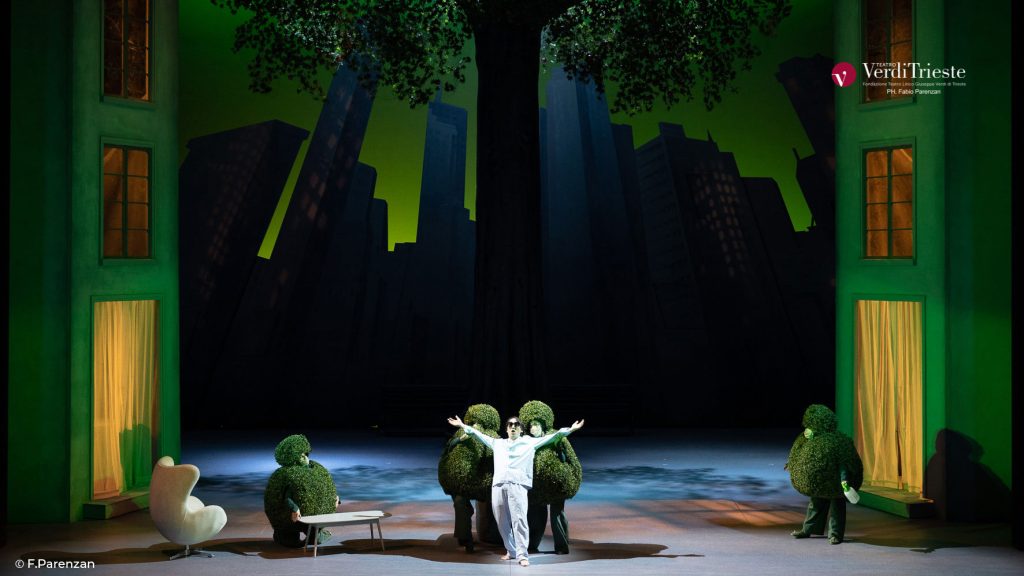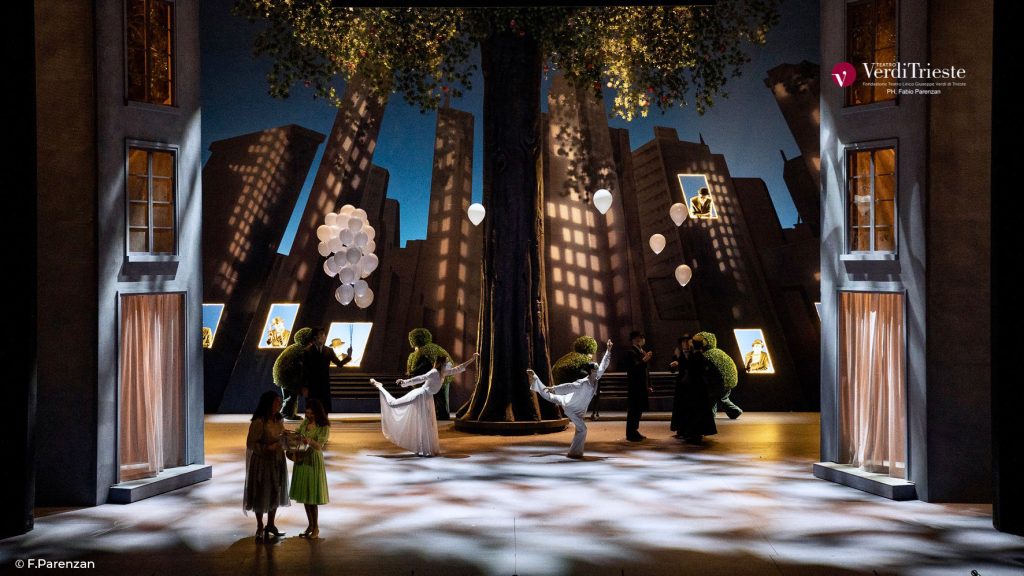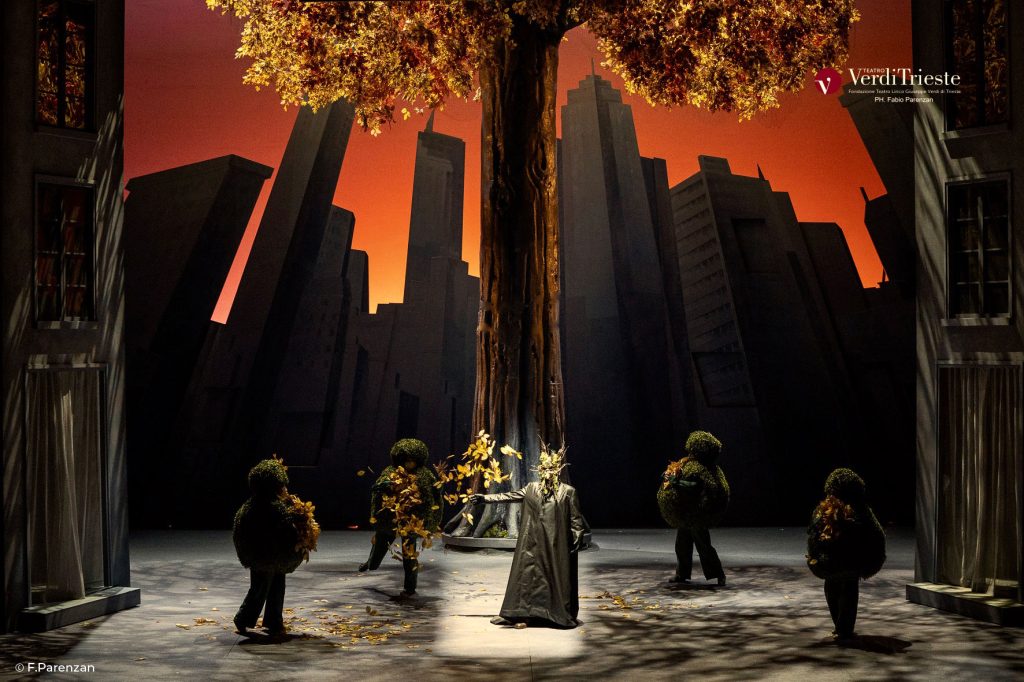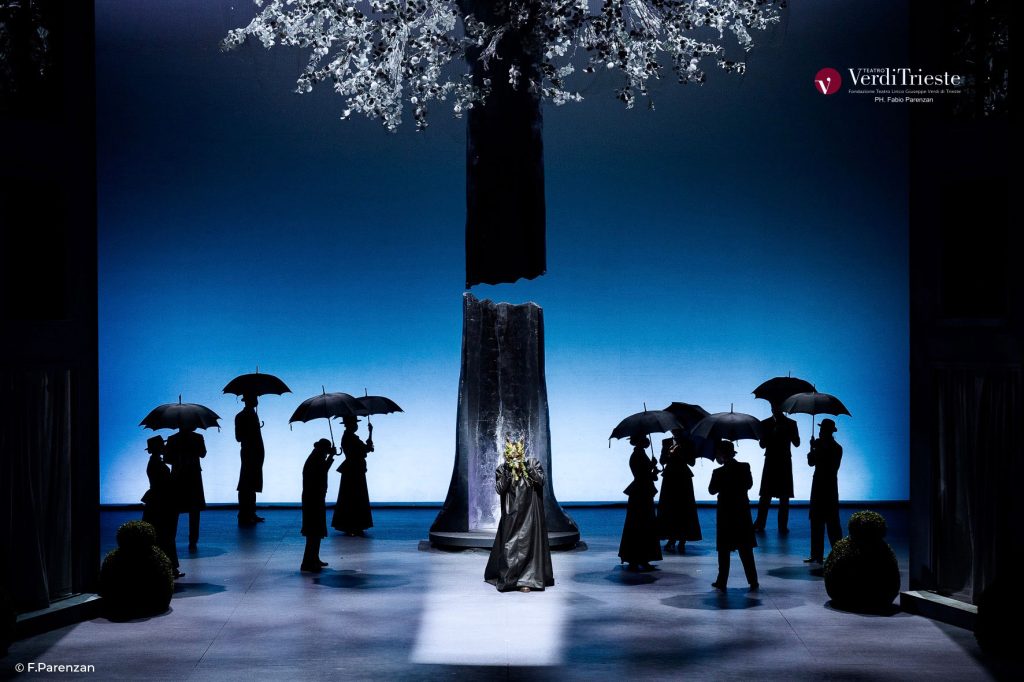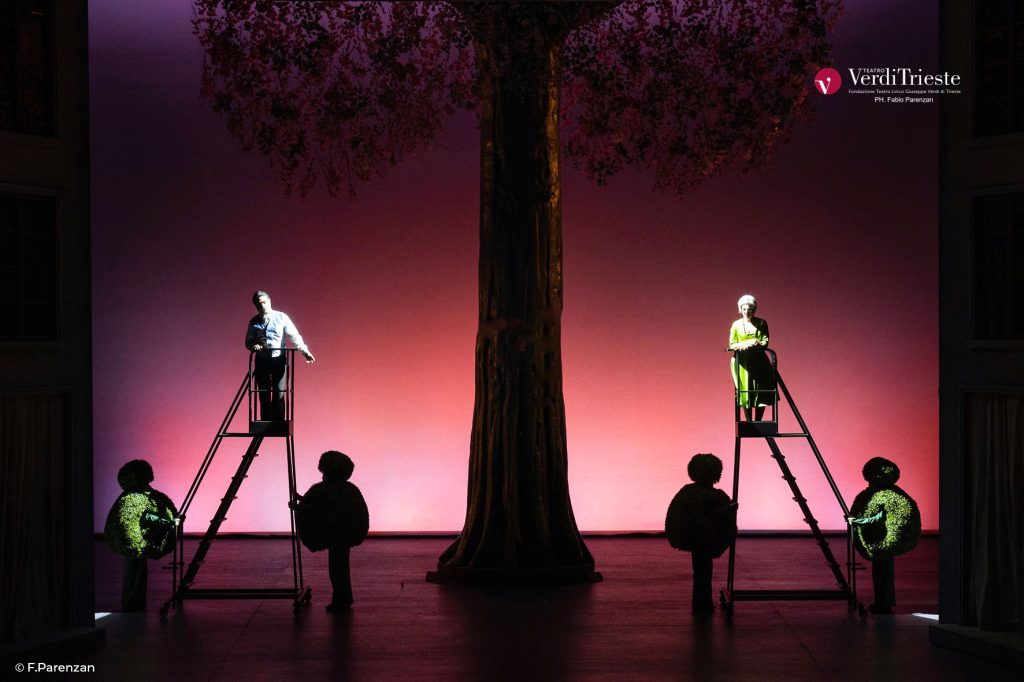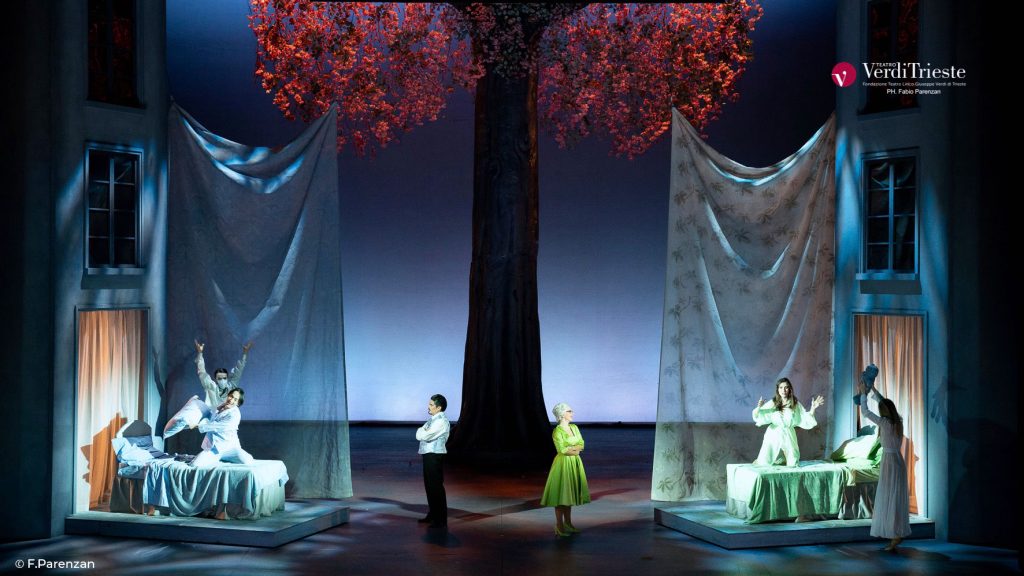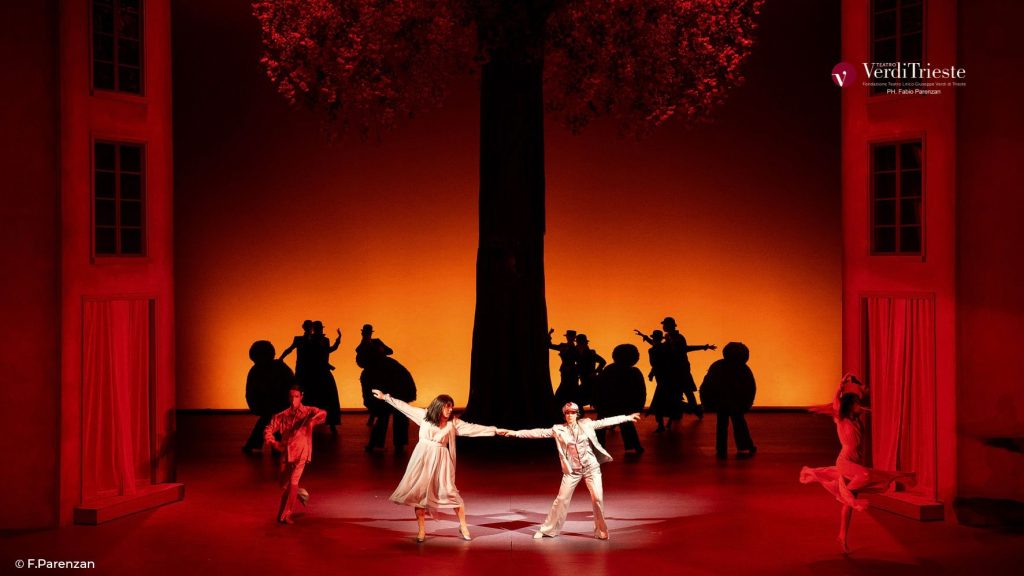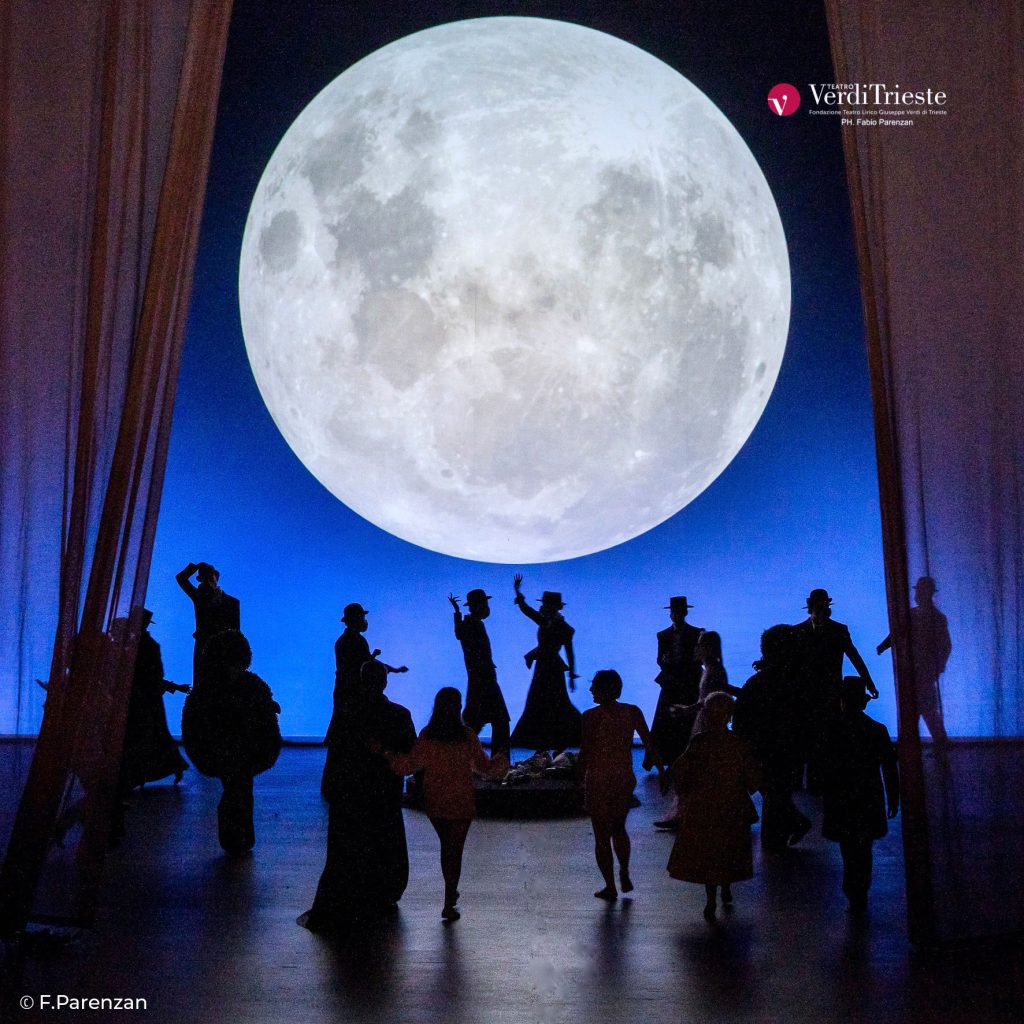
23 Jun Amorosa presenza

Directors’ Notes
Amorosa presenza is an ancient story, always relevant, the story of all of us… the story of love. On stage, at the center, a tree marks the passing of the seasons with its branches: summer, autumn, winter, and spring… representing the passage of time and the seasons of our existence.
Nature appears outwardly impassive, but this is a deception!
Its heavy spirit supports us, like the roots of the earth support a trunk, and it influences our emotions through time and weather. Four funny bushes, like in a fairy tale, unexpected accomplices to madness, accompany our heroes in their delirious excesses: Serena and Horace, two young neighbors living in a city that, from afar, marks the rhythms of a frantic society where colors struggle to emerge and repetitive gestures betray the signs of ongoing conformity!
Inside the house, two enigmatic figures, Guardian and Nanny, spirit guides cut from wallpaper, are the voice of conscience for what is to come—the mirror of passing time that inevitably shapes and dissolves.
They are the voice of reason… which our young people are unwilling to hear! For them, the voice of love is fitting! Desire and dream cannot be reconciled with regret and disillusionment!
Two generations face off! A clash of intentions and viewpoints.
And so… Horace decides to disguise himself as a woman, Letizia, to overcome his shyness and freely praise himself to his beloved Serena, who, intrigued after their first meeting, decides to disguise herself as a man to approach the much-praised and now idealized Horace.
And here the game becomes serious… ambiguous… as many characters in theater and opera throughout the centuries remind us, who have succumbed to the allure of the “ancient trick of disguise.”
From deception, in love, truths always emerge!
Thus, our young people find themselves in four, trapped in themselves, oscillating between their masculine and feminine sides… and end up longing for the friendship that guided them to conquer the other, and perhaps to recognize themselves as more true behind the masks, because that is how they discovered love by recognizing each other, because that is how they loved by loving themselves.
And when, at last, they find themselves face to face for the first time—he in the guise of a she and she in the guise of a he—they cannot do anything but give in to the instinct of passion… their bodies drawn toward one another by the souls that have always sustained them.
Thus… in the whirl of a tango, desire grants no respite and, now stripped of all embellishments and artifices, love triumphs!



